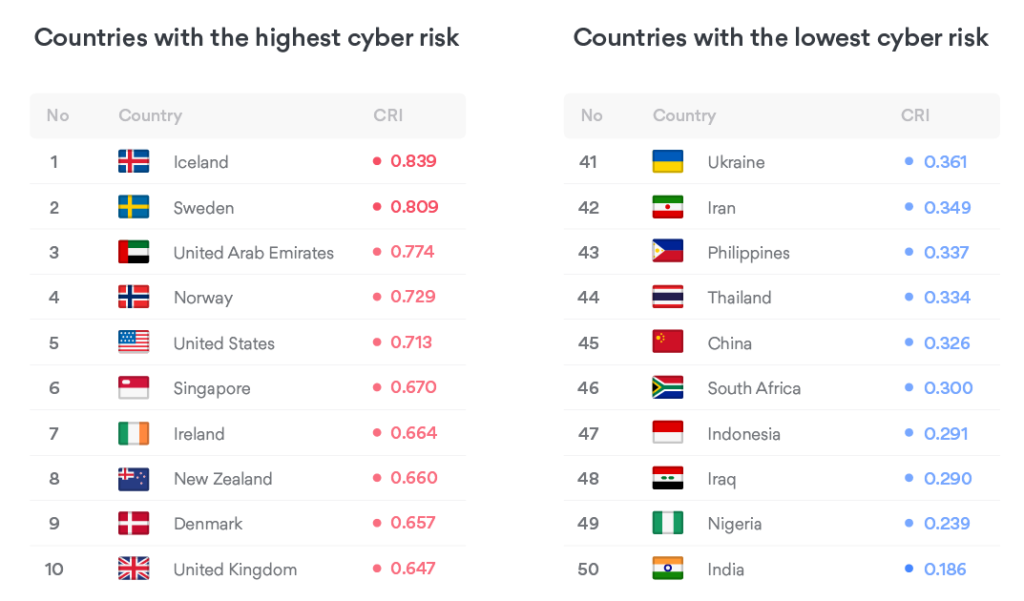A new report by one of the world’s most advanced VPN service provider, NordVPN has identified Nigeria as one of the safest countries in the world to be online after India, suggesting that cybercrime increases with wages and time spent online.
In its Cyber Risk Index, which covers 50 countries comprising 70 percent of the world population, NordVPN noted that India is the least with the lowest cyber risks in the world, followed by Nigeria, Iraq, Indonesia and South Africa.
The report uses high-income economy, advanced technological infrastructure, urbanization and digitalization as the factors that increase the prevalence of cybercrime. Nigeria and all the countries listed seemingly, do not have such services and amenities.
Meanwhile, the first five most dangerous countries to be online, according to the report are Iceland, Sweden, United Arab Emirates, Norway and the United States of America. The report described these countries as developed countries, where there is high-income economy, advanced technological infrastructure, urbanization and digitalization.
“Cybercriminals don’t look for victims; they look for opportunities — much like pickpockets in crowded places. Spend enough time in a packed bus, and a pickpocket will ‘accidentally’ bump into you. Same story online. Your cyber risk increases with every extra hour online,” said Daniel Markuson, a digital privacy expert at NordVPN.
In terms of the region with the highest risks of cybercrime, North America is a close second Northern Europe, as in both regions, more than 9 out of 10 people use the internet, 8 out of 10 shops online, and 7 out of 10 use Facebook. This leads to increased exposure to cyber threats.
The average monthly wages in Northern Europe and North America are among the highest in the world. As your income increases, it’s only natural to enjoy the comfort of online shopping and other paid services. But that makes you a much more enticing target for cybercriminals.
Meanwhile, in India, according to the report, only a third of the population uses the internet, and less than a quarter have smartphones. A tiny share of all Indians use Instagram (5.8%), watch video on demand (7.1%), or play online games (6.6%). The monthly wage in India is 13 times lower than the average of the 50 countries analyzed. That makes India the safest country covered by NordVPN’s Cyber Risk Index. But there are some important caveats.
“Indians who do use the internet, spend a lot of time online — more than an hour longer than the average. They probably live in cities and get higher wages. That puts them at a much higher cyber risk than the average Indian,” the report also argued.
In countries with huge income inequality, low levels of urbanization, or low internet penetration, a small segment of the population may face a much larger cyber risk than the general population.
NordVPN created the Index in partnership with Statista, the world’s leading business data provider. The Index was created in three stages. First, Statista collected socio-economic, digital, cyber, and crime data from 50 selected countries. Second, NordVPN analyzed the data’s positive and negative impact on cyber risk and calculated the correlation between the first three data sets socio-economic, digital, cyber and the fourth crime.
Finally, NordVPN trimmed the data down to the 14 most significant factors, used them to create the Index, and ranked the 50 countries according to the cyber risk they’re facing.

